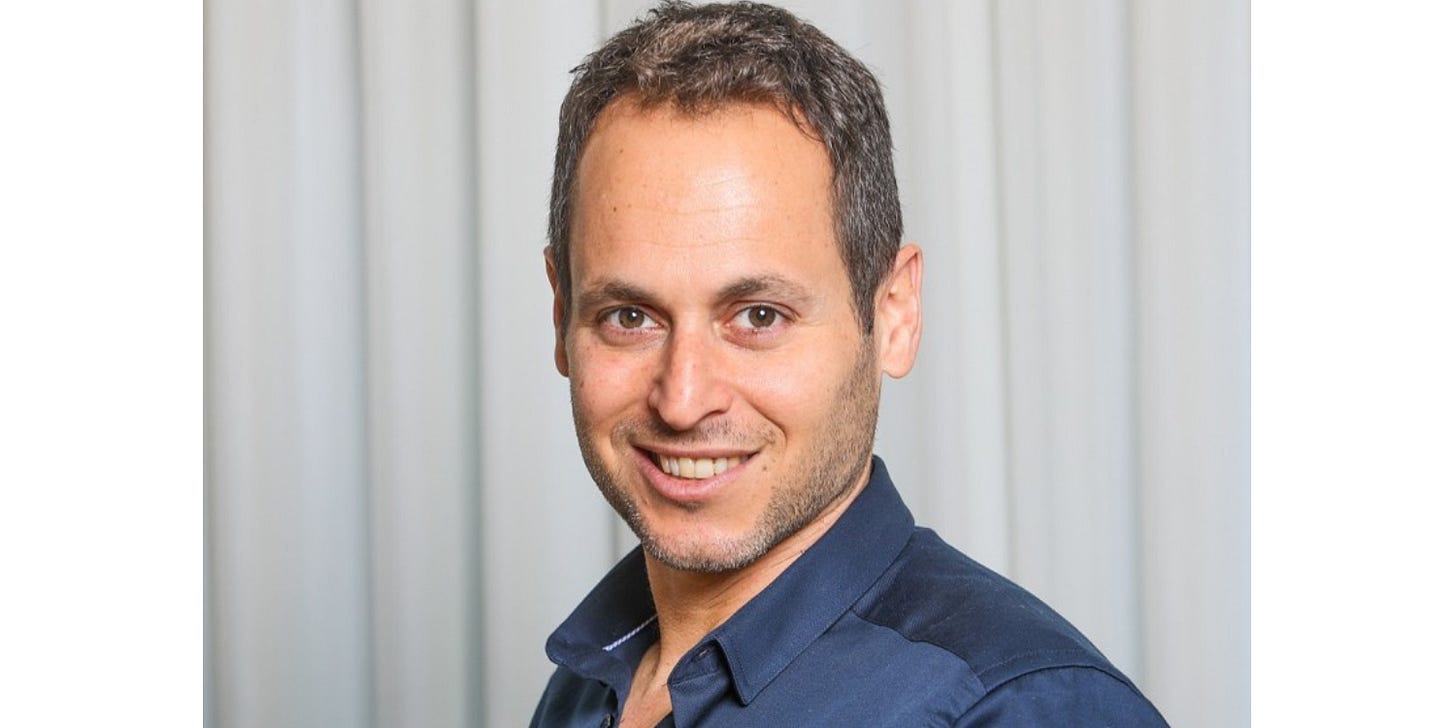This article is part of Fintech Leaders, a newsletter with almost 65,000 builders, entrepreneurs, investors, regulators, and students of financial services. I invite you to share and sign up! Also, if you enjoy this conversation, please consider leaving a review on Apple Podcasts, Spotify, or wherever you get your shows so more people can learn from it.
Asaf Horesh is a Managing Partner at Vintage Investment Partners, a $4 billion global fund investing in VC funds, growth companies and secondary investments. Founded in 2003, Vintage has invested in several of the world's leading venture funds, including a16z, Accel, Bessemer, CRV, Floodgate, General Catalyst, Kleiner Perkins, Lightspeed, Primary, Redpoint, Ribbit, and many more. They have exposure to over 2200 technology companies.
In this episode, we discuss:
Going from Apache helicopter pilot to tech investor, and why self-awareness and critical reflection are important to succeed in VC
Asaf spent eight years at the Israeli Army as an Apache helicopter pilot. In his years as a pilot, his training focused on the art of self-critique and structured debriefing—techniques that he argues are invaluable in his investing role. The practice of thoroughly evaluating every past action can help identify and correct future mistakes, a skill he believes accelerates the improvement of investors. The ability to self-reflect and not "fall in love" with one's initial ideas but rather remain critical and adaptable, is a trait that he considers essential for rapid and effective decision-making in venture capital and fund investing.
How Vintage leverages data to make better investment decisions
“It typically takes two to three years before the M&A market and the IPO window rebound. So hopefully within a year or so, we will start seeing more M&A and the IPO market will open.”
Recognizing the critical role of data in modern investing, Vintage has invested significantly in building an advanced internal data team. Their strategy revolves around the meticulous collection and analysis of data on a massive scale. Initially focused on the Israeli startup ecosystem, the firm has expanded this approach globally, tracking more than 20,000 companies and hundreds of managers over two decades. This massive repository of structured data provides Vintage with unique insights into market trends, company performance, and broader economic indicators. Data collection enables Vintage to make informed decisions with historical context and broad market intelligence.
Lessons from investing in dozens of VCs and why it makes sense to invest in first-time funds
“First time funds are doing as well as second time and third time funds, if not even better.”
Beyond the traditional VC generalist model, Vintage has also started to back sector-specific funds where deep industry knowledge can significantly enhance investment outcomes. Focusing on specific verticals like FinTech and healthcare is based on the understanding that certain sectors have grown sufficiently large and complex, requiring investors who have a thorough understanding of the nuances and regulatory environments specific to those sectors.
Additionally, Vintage is bullish on first-time fund GPs who have demonstrated potential through past successes. This strategy traces its roots in a robust analytical framework where the firm tracks the performance of individual partners within funds, understanding who sourced deals, led due diligence, and managed board responsibilities. By modeling investments around the historical performance and capabilities of these managers, Vintage aims to support emerging talents who have spun off from established funds, ensuring a continuity of expertise and insight.
Succession planning for investment firms… and a lot more!
“The best indicator for future success, in Venture, is past success. That's pretty much the only indicator.”
In 2023, Vintage’s Founder, Alan Feld, stepped down after 20 years of running the firm. Asaf and Abe Finkelstein were promoted to Managing Partners and this completed the first generational transition of management at Vintage. This process took years of succession planning and included structured agreements and transparency with all stakeholders involved, particularly Limited Partners (LPs). Asaf highlights the significance of a formal agreement that stipulates key transitional details, such as the age at which senior partners will step back from active fund management—62 in their case. This clarity and foresight in planning can ensure that transitions are not abrupt but are anticipated and smoothly executed. It’s still early days for the new management at Vintage, but it appears they have managed the generational transition much better than some large, well-known funds around the world.
Want more podcast episodes? Join me and follow Fintech Leaders today on Apple, Spotify, or your favorite podcast app for weekly conversations with today’s global leaders that will dominate the 21st century in fintech, business, and beyond.

























Share this post